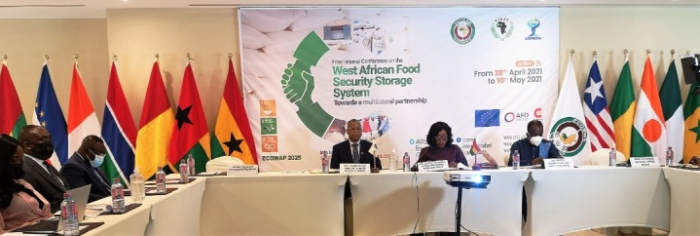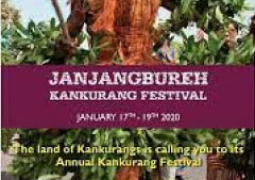
Speaking at the opening ceremony of the two-week virtual event, the ECOWAS Commissioner for Agriculture, Environment and Water Resources, Sékou Sangaré said this high-level technical and political conference is designed as a space for sharing and reflecting on the experiences of food security storage in West Africa.
The conference offers an opportunity for policy dialogue between the sub region and its partners in order to build consensus on the increase of West Africa’s capacity to address the looming food, nutrition and pastoral crises.
It followed a five-year implementation of the regional storage strategy adopted in 2012, with the support of the European Union. This strategy deploys a regional storage system based on decentralised local stocks, national stocks and the Regional Food Security Reserve created in 2013, comprising both a physical stock and financial reserve.
A representative of the Ministry of Agriculture of Ghana, whose country is currently chairing the sub regional body, said Ghana is one of the countries to have benefitted from this food bank initiative. He therefore calls for a more enhanced regional food storage system that ensures that agricultural products are safe and secure as it is not only linked to hunger and nutrition but also employment in the subregion.
Such a food crisis as evidenced during droughts and natural catastrophes or in the Covid pandemic lockdown for example, had taught Ghana to now adopt a national food storage policy. Ghana had already benefited from this system through school feeding programmes.
The programme promotes food sovereignty, intra-regional trade and integration and complements member states’ efforts in eliminating hunger, the official said.
Over the next one week, the conference will assess the achievements, challenges and important lessons learned in the three lines of defence led by ECOWAS authorities, in consultation with their regional and international partners.
It will share the progress made, the achievements and the difficulties encountered; outline the prospects for the next 10 years in a context of major and rapid changes; lay the foundations for an enlarged partnership around the regional food reserve system, capable of responding effectively to the food, nutritional and pastoral crisis that affect the living conditions of the populations, while slowing down the attainment of the ECOWAP objectives and Sustainable Development Goals 1 and 2.





